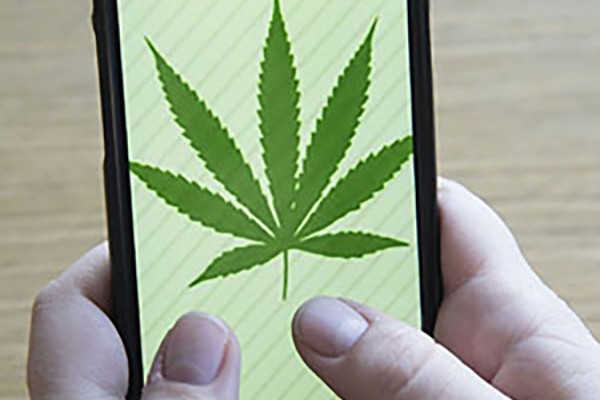On Twitter, hookah smoking seen as positive
Positive mentions on Twitter about hookah smoking may promote the assumption that it is less harmful than smoking cigarettes even though the Centers for Disease Control and Prevention reports that hookah smoking has many of the same harmful toxins and carries the same health risks, according to new research at Washington University School of Medicine in St. Louis led by Melissa J. Krauss, seen here with a hookah pipe.
Brown School study analyzes Twitter hashtags associated with diabetes
An analysis of Twitter hashtag use on the subject of diabetes provides new insights about spreading health information through social media. The study, led by Jenine Harris, PhD, assistant professor at the Brown School at Washington University in St. Louis, looked at the hashtag #diabetes and its interaction with two Twitter measures of engagement, retweeting and favoriting. The study found retweeting and favoriting was significantly lower for tweets about the number or percentage of people with diabetes, while favoriting was higher for tweets about health problems associated with diabetes.
Pro-marijuana ‘tweets’ are sky-high on Twitter
Analyzing every marijuana-related Twitter message sent during a one-month period in early 2014, researchers at the School of Medicine have found that the “Twitterverse” is a pot-friendly place. In that time, more than 7 million tweets referenced marijuana, with 15 times as many pro-pot tweets sent as anti-pot tweets.
#feeling sick: Can Twitter help better identify foodborne illness cases?
An estimated 55 million to 105 million people in the United States suffer from foodborne illnesses each year, resulting in costs of $2-$4 billion annually. What if Twitter could be used to track those cases and more quickly identify the source of the problem? A new analysis by a researcher at Washington University in St. Louis Brown School shows that new technology might better allow health departments to engage with the public to improve foodborne illness surveillance.
Youth regularly receive pro-marijuana tweets
Hundreds of thousands of American youth are following marijuana-related Twitter accounts and getting pro-pot messages several times each day, according to researchers at the School of Medicine. They said the tweets are cause for concern because young people are thought to be especially responsive to social media influences and because patterns of drug use tend to be established in a person’s late teens and early 20s.
Local health departments find Twitter effective in spreading diabetes information
Twitter is proving to be an effective tool for local health departments in disseminating health information — especially in promoting specific health behaviors. The latest study, led by Jenine K. Harris, PhD, assistant professor at the Brown School, focused on diabetes, a disease that may affect an estimated one-third of U.S. adults by 2050. “We focused on diabetes first, both because of increasing diabetes rates,” Harris says, “and also because people living with diabetes tend to use online health-related resources at a fairly high rate and are an audience already online and on social media.”
Olin Library Hosts Twitter 201 Series
Several librarians at Washington University are offering a series of free workshops this spring to help students, faculty, and staff tap the practical powers of Twitter. Each of the sessions is held in Olin Library’s Arc (Level A) at 3 p.m. on various Thursdays throughout the spring semester. Upcoming sessions will include the following topics: professional development and the job search; photography and images; and the use of hashtags.
Olin Library hosts spring Twitter classes
Washington University Libraries staff members are offering a series of free workshops this spring to help students, faculty, and staff tap the practical powers of Twitter.
Social media auto-overshare to meet its demise in 2013, says privacy law expert
Everyone knows someone who overshares on social media,
from constant updates about daily minutiae to an automatically generated
stream of songs listened to, articles read, games played and other matters blast-broadcast through various applications. Intentional
over-sharers may be a necessary nuisance in our wired world, but the
days of the auto-generated social media stream may be numbered, says
Neil Richards, JD, privacy law expert and professor of law at Washington
University in St. Louis.
Olin Library hosts fall Twitter series
Washington University Libraries staff members are offering a series of free workshops to help introduce students, faculty and staff to Twitter. Each of the four sessions will be held in Olin Library’s Arc (Level A) at 3 p.m. on Thursday afternoons throughout the fall semester with topics ranging from Twitter 101, an introductory class, to more advanced workshops on specific uses of the popular social media platform.
View More Stories

